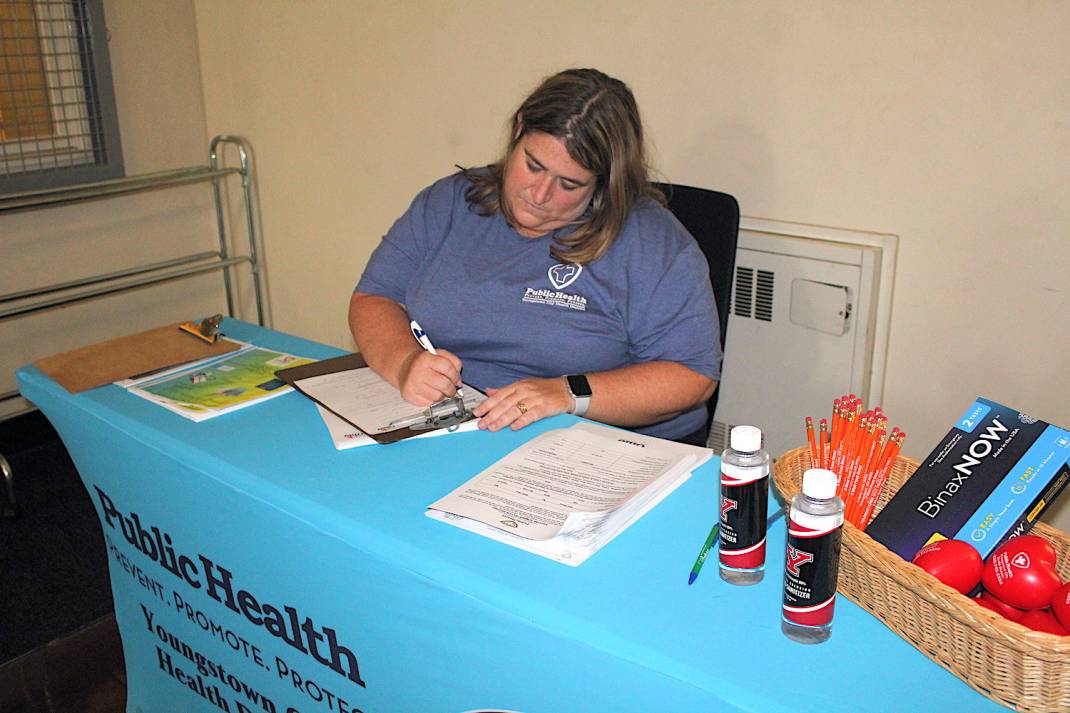ARP, Health News: Full Article
Staff Adds, Local Alliances Highlight Plan to Boost Health

November 15, 2022
Fresh off of lessons learned during the COVID-19 pandemic, the Youngstown City Health Department is planning a major staff and service expansion to improve the way health issues are identified and addressed in the City.
The expansion, funded by more than $2.4 million from the City’s American Rescue Plan funds, will add four new “community health workers,” along with a supervisor and epidemiologist to support them.
Health officials also plan to name “lead organizations” on the North, South, and West sides to replicate the success charted through recent collaboration with Price Memorial AME Zion Church, an East Side landmark that will be the lead organization for that side of town.
These organizations will be instrumental in helping the health staff dig deeper for more specifics about the City’s chronic health issues and deliver effective solutions for them.
It will be a combination of healthcare and community organizing.
“The health of our City is not where it needs to be,” said Erin Bishop, City health commissioner.
“We rank very low in a lot of categories for healthy living. We want to improve those numbers as a baseline. We want [each community health worker] to be a voice of the people, a person to complain to, someone to ask for help.”
Stats Show Need for Investment
Statistics from the 2020 Census and the 2018-2019 Community Health Needs Assessment point up a need for more investment in public health. Among them:
- 20% of City residents had a disability.
- 15.7% of babies were born preterm, and 13.3% were born with a low birth weight.
- 10.9% of residents had no health insurance.
- 42.2% of residents had Medicaid coverage.
- 72% of adults were either overweight (33%) or obese (39%).
- 25% of adults rated their health status as fair or poor.
- 16% of adults were diagnosed with diabetes.
- 40% of adults were diagnosed with high blood pressure.
- 28% of adults were limited because of a physical, mental or emotional problem.
Critical to improving those numbers is connecting health professionals more closely with City residents, as happened during the pandemic, Bishop points out.
In early 2021, when COVID vaccinations were first introduced, the uptake in the Black community was extremely low – 30 percent, based on Ohio Department of Health numbers, Bishop said. The health department helped set up an action group to deal specifically with that issue and thereby helped drive that rate up to 56 percent within six months, she said.
Close Cooperation with Key Leaders
Bishop credits close cooperation with Price Memorial, the McGuffey Center, Youngstown Metro Church, New Bethel Baptist Church, OCCHA, Mill Creek Community Center, and other churches and organizations with close ties to minority communities. Health department professionals went door-to-door in some neighborhoods to share information about COVID-19 and set up tents in others.
The health department also contracted with a transport company to bring people to vaccination sites.
“We worked very hard to get that percentage up, and we did it by going where the people are,” Bishop said.
Price Memorial and its pastor, the Rev. Dr. William C. King, Jr., were especially helpful, she said. The church expanded its food pantry in 2021 and hosted vaccination clinics.
During his popular Facebook Live program, “Real Talk,” Dr. King encouraged people to get vaccinated and brought on guests to talk about infant mortality and other health issues.
Lead Community Organizations
The plan is to have a lead community organization like Price Memorial on each side of town. Each side will also have a community action team to work with its designated community health worker, preferably a local resident with office space on the lead organization’s premises.
The action teams will include representatives of the local communities, health department, Mercy Health, and other organizations that work with the department.
The new epidemiologist will be the City’s first. Epidemiologists are “disease detectives” who search for the causes of diseases, identify people at risk and determine how to control or stop the spread of the disease.
Health and wellness resource fairs are planned for early next year on all four sides of town to introduce the community health workers, lead organizations, and new approach.
“This is going to be a really great project because we’ll be able to make changes in those neighborhoods, and it’s going to be what they want and need,” Bishop said.
“With COVID, the health department was a trusted place to get information from. We want to continue that relationship with those neighborhoods.”

